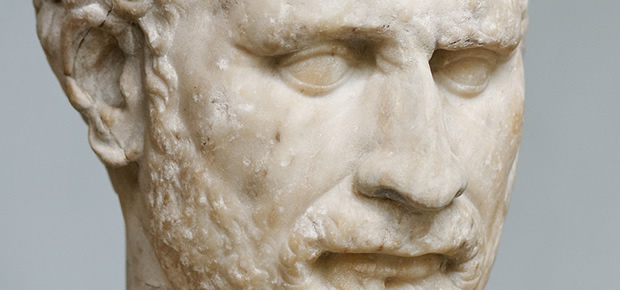
1.5 Literature
In Athens, the population could read and write and do arithmetic. Education, if we exclude the military training, it was the duty of the State, but private activity, and up to the middle of the fifth century, widespread teaching came to a halt at the elementary level. The specialist qualifications were acquired in the home or through apprenticeship. There was then a professional training for horse riding, athletics and the fight. But in literature and in philosophy, Also during the generation of Pericles and Sophocles, each learned through teaching and not systematic older men and peers, or striving alone. Then came the men known as "sophists" who were traveling to the main centers offering, in return for high fees, education in the field of rhetoric, of philosophy and art of government. Higher education was therefore essentially based on the relationship between student and teacher. The books consisted of papyrus scrolls written on multiple columns, reading is not easy because there were no punctuation marks, titles and paragraphs were erratic, the words were not usually separated from each other. The copies of the book had to be written by hand and therefore the circulating books were very few. In the late fifth century we hear of selling books, but their business was obviously very modest. For all these reasons, the Greeks preferred to speak and listen. Even their architecture was that of a people who loved to talk: just remember the huge open-air theaters and venues of meetings, but also the most characteristic of all Greek buildings, the stoa or covered walkway with columns.
For every person who had read a tragedy, There were tens of thousands who knew by heart the tragedies to have witnessed or taken part in their representation. And this is also true of lyric poetry, composed for public performance, often by choruses, on solemn occasions such as a wedding or religious, or to celebrate a military victory or a victory in the games. Similarly happening, albeit in a more limited extent, for prose. Erodono, for example, gave public readings of his History; philosophers taught by means of speeches and discussions. Plato openly expressed his distrust of the reliability of the books because they could not be interviewed and transcribed the ideas could not be corrected or improved further. And above all, this pure chi era, come Fedro, argued that the books were written in order to weaken the memory. His teacher Socrates, consistently, he was a great conversationalist and never wrote a line.
Plato, despite all his doubts, was a prolific writer. Most of his works are in the form of "dialogue", in which his philosophical ideas are carried out through discussions, sometimes complicated, of dramatic structure, in real environments with real characters who discuss and laugh and get angry just as happens in everyday life. The few prose writers of the fourth century, whose style can be put on a similar plan, are speakers and teachers of rhetoric as Isocrates and Demosthenes, who wrote not only real speeches, but also political pamphlets disguised as prayers.
E 'to believe that this raising of oratory high literary form, is the end result of the passion of the Greeks for the word, aspect that should be kept in mind in considering the Greek literature until the end of the classical period.




